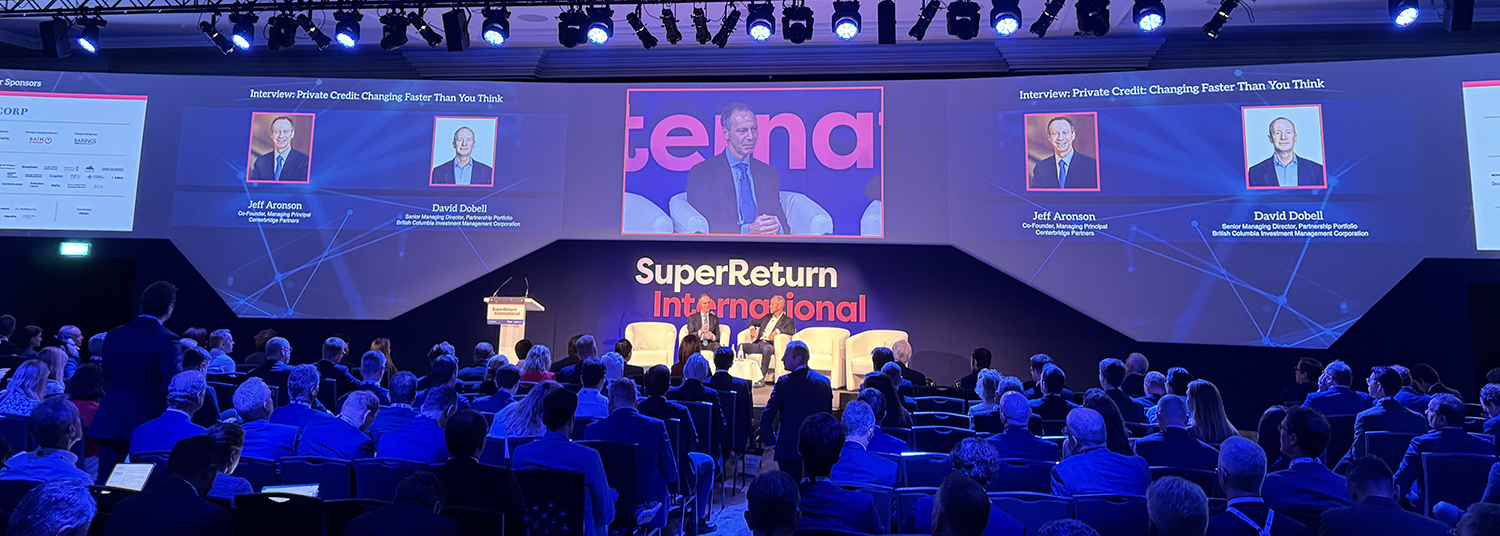SuperReturn, the premier global gathering for the private equity world, saw another record turnout in Berlin this year. Around 5,000 limited partners (LPs), general partners (GPs), and advisers converged, and the media was there in force too, with Kekst CNC supporting clients on about three dozen reporter meetings over a three-day period.
Attendees were somewhat heartened by an uptick in deal activity and a promising rate cut from the European Central Bank. Private equity and venture capital deal values surged past $130 billion in Q1, though still far from the $264 billion peak of Q1 2021.
Behind the scenes in private conversations away from the main stage, a more sombre narrative unfolded. With unrealized investments exceeding $3 trillion, LPs are clamouring for returns, making fundraising tougher than ever for GPs.
In this climate, every GP is hunting for an edge—whether in winning capital, sealing exits, or securing deal flow. Increasingly, reputation and communications are the sharp tools in their arsenal.
When deals don’t do the talking
With deal flow subdued, GPs are losing a key traditional lever to stay in the spotlight. In this hypercompetitive environment, maintaining relevance is crucial. The solution? An always-on communications strategy. This involves constant engagement, innovative content, and robust thought leadership, leveraging digital channels to stay ahead.
Show, don’t tell
Featuring portfolio companies in communications is a powerful strategy. It not only engages key audiences outside the deal cycle, but also helps GPs deliver on “fundamental value creation” as EQT CEO Christian Sinding puts it, showcasing operational expertise in a high-interest-rate environment.
As scrutiny of private equity grows, there are chances to demonstrate its pivotal role in addressing global challenges. Tikehau Capital, for example, has built a reputation around megatrends, spotlighting initiatives like its private credit strategy’s pioneering ESG-linked ratchet pricing.
Leading from the top
Visible leadership is increasingly critical. Talent is PE’s greatest asset, a point CalPERS’ Anton Orlich emphasized in his keynote interview.
Leaders can drive a GP’s narrative, from engaging with media to high-profile campaigns. One prominent example was last year’s book on leadership from Investcorp’s executive chairman and the accompanying Financial Times profile.
While CEOs personifying their firm is nothing new, the notion of leadership has changed. As SuperReturn guest speaker and former Arsenal Football Club manager Arsène Wenger put it, leaders need to “ruthlessly desire” but also have empathy. “You need to be capable to make your team believe you care about them,” he said.
Empathy was seen as key for what it takes to lead the next generation of PE talent, for whom purpose and vision often decide if they stay at or leave a firm, and to successfully introduce new leadership into portfolio companies to stimulate collaboration.
Looking east
Another topic that was also on the minds of communications executives was helping their firms expand or strengthen their position in the Middle East. Though fewer Gulf LPs attended SuperReturn compared to the Milken Institute’s event, the strategic importance of the region was widely discussed.
What’s clear is GPs can no longer see the Gulf as “a refueling stop”-- the region’s leaders are looking to build more strategic partnerships with GPs. Credibly building market reputation is key to getting that approach right and needs to be informed by insights from on the ground in the Middle East.
Stuck in the middle
Amidst growing chatter about consolidation in the PE industry, having a strong, standalone GP story is vital. For midsized GPs in the middle of the “barbell”, lacking the scale of the largest firms but not known as a niche specialist, differentiation is key. These firms must carve out distinct identities to thrive; know exactly what they want to be known for, and ensure all communications follows suit.
The edge
While cautious optimism lingered at SuperReturn, it’s clear that the road ahead remains tough. From boosting portfolio company reputations and differentiating in a crowded market to penetrating new regions and finding novel exit strategies, smart and increasingly creative communications are more critical than ever for GPs seeking a competitive edge.


